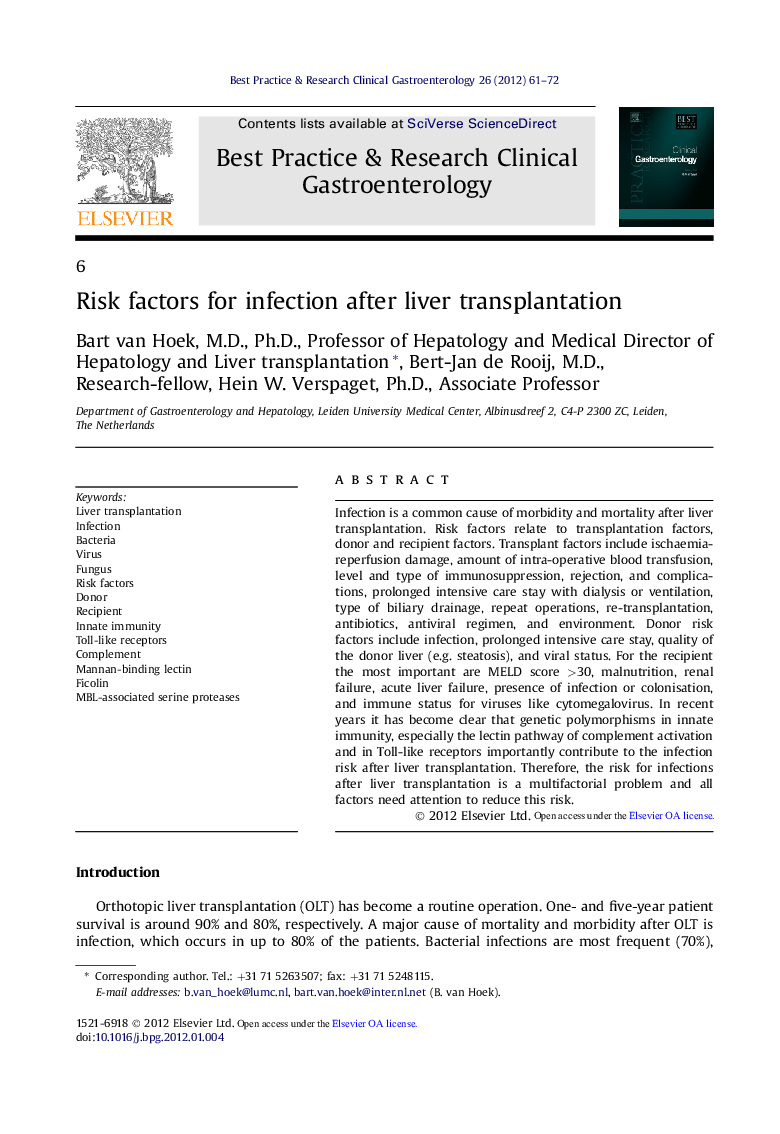| Article ID | Journal | Published Year | Pages | File Type |
|---|---|---|---|---|
| 6086498 | Best Practice & Research Clinical Gastroenterology | 2012 | 12 Pages |
Infection is a common cause of morbidity and mortality after liver transplantation. Risk factors relate to transplantation factors, donor and recipient factors. Transplant factors include ischaemia-reperfusion damage, amount of intra-operative blood transfusion, level and type of immunosuppression, rejection, and complications, prolonged intensive care stay with dialysis or ventilation, type of biliary drainage, repeat operations, re-transplantation, antibiotics, antiviral regimen, and environment. Donor risk factors include infection, prolonged intensive care stay, quality of the donor liver (e.g. steatosis), and viral status. For the recipient the most important are MELD score >30, malnutrition, renal failure, acute liver failure, presence of infection or colonisation, and immune status for viruses like cytomegalovirus. In recent years it has become clear that genetic polymorphisms in innate immunity, especially the lectin pathway of complement activation and in Toll-like receptors importantly contribute to the infection risk after liver transplantation. Therefore, the risk for infections after liver transplantation is a multifactorial problem and all factors need attention to reduce this risk.
